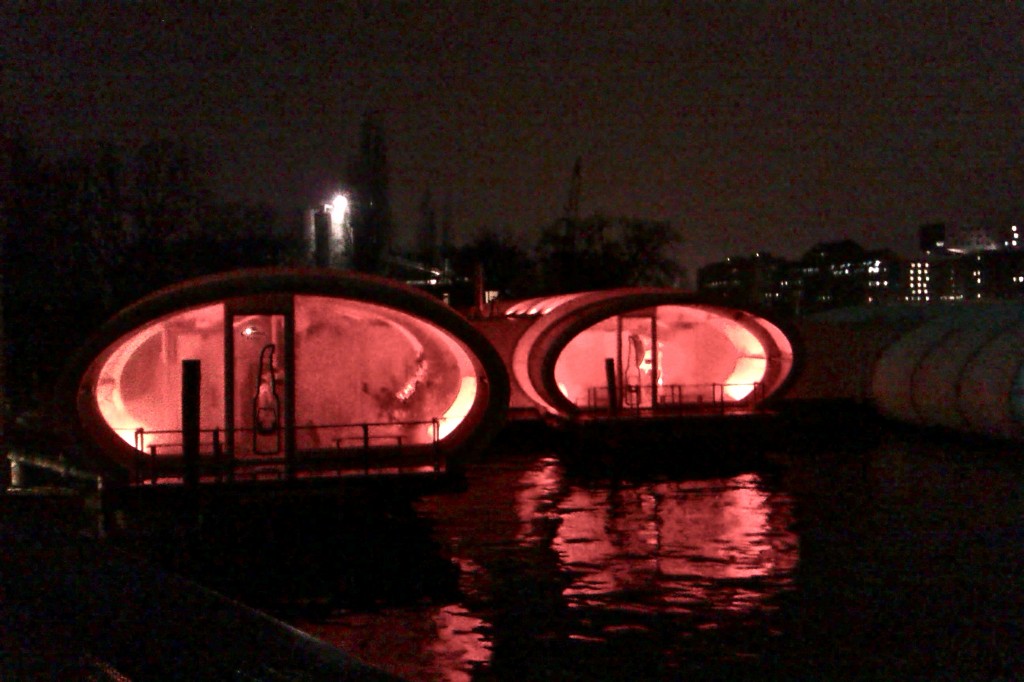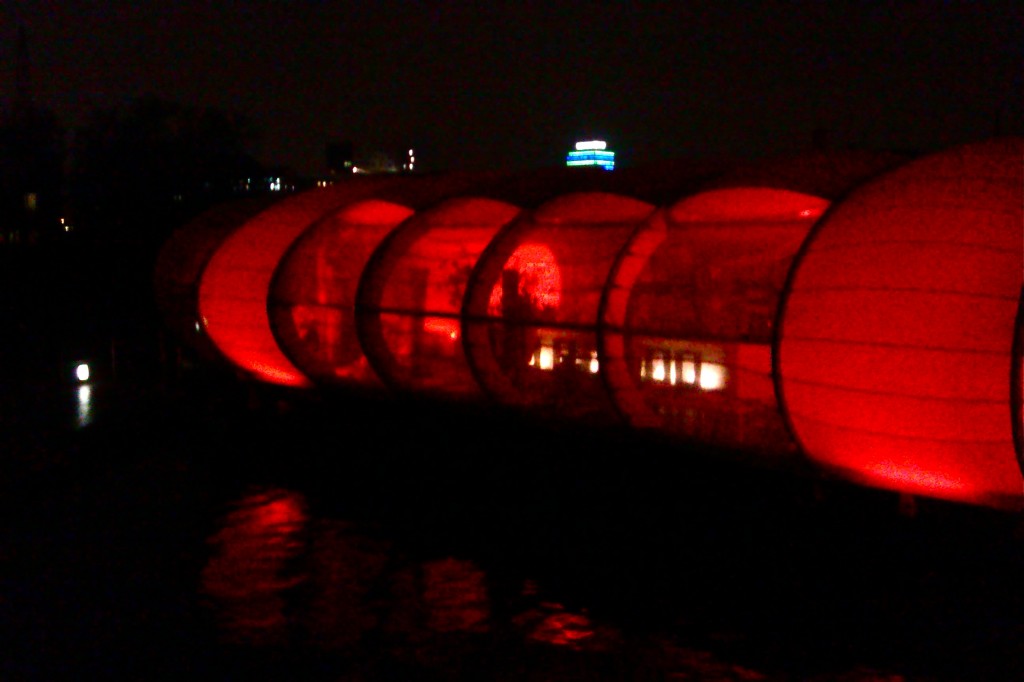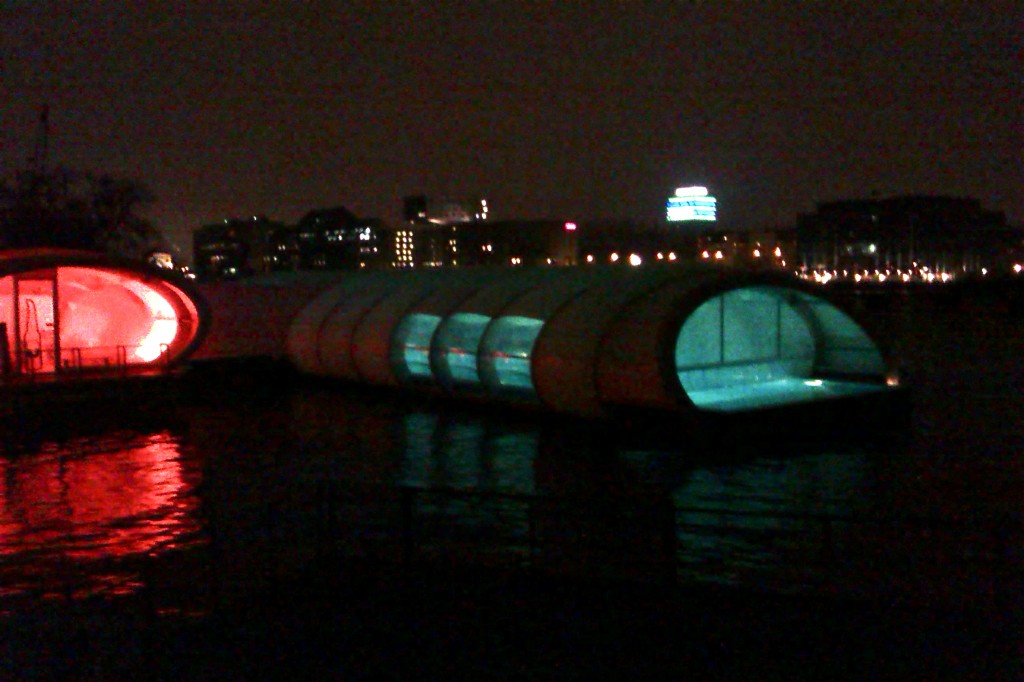No Winter Badeschiff
Every winter something remarkable has happened in Berlin. The Badeschiff (or “swimming boat”) is an innovative pool that floats in the Spree river in the centre of the city. In summer, it is a venue for electronic music parties: a beach bar that is young, dancey, and tropical for such a northern metropolis. In winter, it puts on a roof and turns into a floating naked sauna.
I spent all summer looking forward to December, just so this could happen.
I want to swim underwater, and emerge at the far end of the pool, looking up at the winter stars and then across the frozen Spree. You are almost level with the water line. It seems a miracle, to be here; there is the illusion you are swimming right in the frozen river.
Your hair begins to freeze and you duck down into the water and swim back under the dome of the covered Badeschiff. The water, uplit, sends wavering reflections on the temporary roof. You pull yourself out of the pool, and you notice the contemplative silence.
You get a cocktail from the bar, wander through the carefully designed wooden interior (it won an architectural prize in 2007). There are hot saunas, different temperatures, and an hourly Aufguss (when then door is closed and you all snug inside as water is poured on the hot rocks). You shower, and curl up under a blanket on the slatted wooden loungers that rock slightly. People are reading books, their feet up, and they can peer through the protective plastic to the cold elements outside. Sometimes you are forced outside. The changing rooms are in another building: there’s the exhilarating feeling of a naked wander through the snow before you reach the warm saunas. This moment of cold is nothing that the unlikelihood of a winter mojito can’t fix.
Men and women mix here without clothes, with none of the nervous humour that many English-speakers feel towards the naked body (I’ve been told an American tourist visiting with her child tried unsuccessfully to sue the Badeschiff because she was not forewarned her child would see naked men). The attitude here is not simply matter-of-fact, but there is also something poignant about standing nude before a frozen river in deepest winter, protected by only the thinnest layer to retain the heat.
But not this year, there will be no Winter Badeschiff. It’s closed for “renovation” and will only open in the summer. When I found out, I spent a whole day in the dumps and googling alternatives to combat the short days and winter cold: the sauna at Stadtbad Neukölln or Bauhaus Stadbad Mitte, or the Liquidrom. None of them will do.
They can’t replace the feeling of being on the river at 3am (the Badeschiff often stays open late) and then emerging all bundled into the still of the Berlin night, passing through the post-industrial spaces of the Arena club complex, lit only by little red lights suspended above the brickwork, leading you to the night bus. Then you are waiting on a deserted street as the snow falls, your stress in submission from the Aufguß, your mind silenced, and you draw from all the warmth you have found inside. In the still of a cold Berlin night, last year, winter didn’t seem quite so bad.





